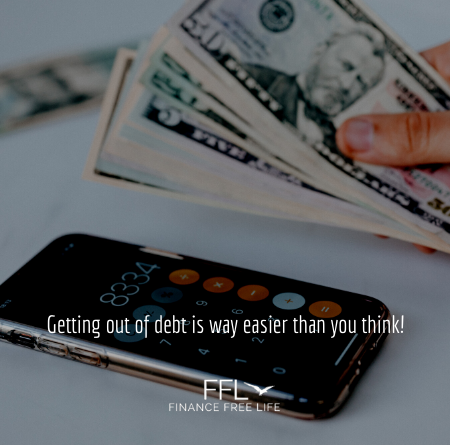Debt Hacks – The Do’s and Don’ts of Using Credit Wisely
If you follow any finance guru online, you are probably familiar with the mindset that “Debt is dumb”, and you should cut up your credit cards once you’ve paid them off. Although that mentality is helpful for many people, it is not always the best path, or even the only path. There are other options available. There are both healthy and unhealthy ways to use debt. Once you become debt free, follow these guidelines for using debt wisely.
Rule #1: Never buy ANYTHING you wouldn’t buy with cash.
This rule sounds counter-intuitive, but it is rule #1 for a reason. When it comes to using credit, you should never under any circumstances use credit to purchase something you cannot afford, or would not purchase with cash. The problem that most people encounter when it comes to debt, is overextending their budget. They use credit to purchase things they never should have purchased in the first place. Think luxury cars, big houses, fancy furniture… Debt tricks you into thinking you can afford a “low, low payment of…” instead of understanding the full price. Don’t let a payment trick you into purchasing something beyond your budget.
Rule #2: Start with a budget.
This rule comes up probably in every single post we write. But first and foremost, start all decisions with your working budget. If you don’t have a budget yet, check out our wealth of resources on budgeting. When you start with your budget, you know exactly how much money you have available, what payments you can ACTUALLY afford, and how long it would take you to repay the debt. This is one of the many reasons why we believe budgeting to be important.
Rule #3: Do the math BEFORE you sign.
When deciding to make a purchase using credit, make sure you do the math, and understand the interest, before you sign on the dotted line. For example, let’s say you want to purchase a car. You have enough money in savings to pay cash outright for it, but it would deplete most of your savings. You’ve already negotiated a low price with the local dealer, and they knock off an extra $1500 when you finance with them. To ensure you don’t pay excess money in interest, you choose to finance the vehicle with a hefty down payment. As long as you pay off the loan prior to paying $1500 in interest, you break even. It’s a win-win. You don’t pay more for the vehicle than it’s worth due to interest, and you don’t completely deplete your savings account. But, you have to know the numbers before you purchase, to ensure it is a wise decision.
Rule #4: Know yourself.
Ultimately, it comes down to you and your personality. When making any financial decisions, you have to know yourself and your habits. Cutting up credit cards and removing credit from your life completely works great for some people! It requires no major financial literacy, and is a foolproof method to becoming debt free. However, for others, using credit wisely a viable option. If you can control your spending, and not use the credit card to purchase things you normally wouldn’t, then pay it off every month, it is safe to use. Again, you have to know yourself and your habits first and foremost.
When it comes to living debt-free, make the choices that are right for you and your family. For us, that means having a credit card available for large purchases and travel, and occasionally using a loan to purchase our vehicles every 5-10 years so as to not completely drain our savings accounts. For others, it means cutting all ties with all forms of credit and never looking back. Whatever you do, decide for you what works best.

